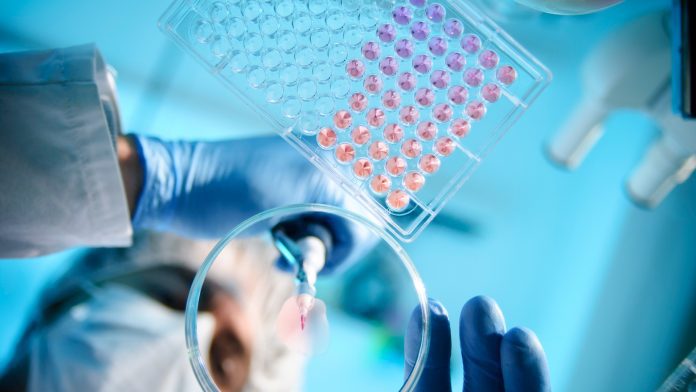
Exciting developments are being made for a paratyphoid fever vaccine as human trials begin in Oxford.
Salmonella Paratyphi A is a bacterium that can cause a disease called enteric (paratyphoid) fever. It is common in resource-poor communities in Asia with inadequate sanitation and limited access to safe water.
The University of Oxford, in collaboration with the University of Maryland School of Medicine (UMSoM), has begun recruiting for a Phase I/II trial of a new paratyphoid vaccine in human volunteers in Oxford – with the first vaccinations taking place on April 27, 2022.
This is the first study of its kind with paratyphoid vaccine volunteers being ‘challenged’ with paratyphoid to see whether the vaccine can prevent infection.
Trialling a paratyphoid fever vaccine
The Vaccine Against Salmonella Paratyphi (VASP) study will assess the immune response efficacy and safety of a new paratyphoid fever vaccine called CVD 1902. This vaccine will be administered via the mouth as a drink.
CVD 1902 was developed by a team of scientists at the Center for Vaccine Development and Global Health (CVD) of the UMSoM. The researchers are utilising a human challenge model for this trial as it will allow an understanding of the effectiveness of the vaccine without having to immunise thousands of people.
Professor Sir Andrew Pollard, Director of the Oxford Vaccine Group and Chief Investigator of the trial, said: “Vaccines are urgently needed to prevent the 3.3 million cases of paratyphoid fever that mostly affects school-age children in South and South-East Asia. This first human challenge study to evaluate a paratyphoid vaccine will bring us a step closer to reducing the burden of this affliction in the world.”
Results expected in 2023
A planned sample of up to 76 participants – aged 18 to 55 and in good health – will be randomised to either receive two doses of the new paratyphoid fever vaccine or a placebo given 14 days apart. Following this, the participants will be challenged with the paratyphoid bacteria to see whether they are protected against infection.
The next stage would be the monitoring process, where the vaccine volunteers will be observed closely and treated with antibiotics as soon as they show signs of infection or after two weeks if they do not show any signs of infection. Results are planned to be available in 2023.
Dr Maheshi Ramasamy, Senior Clinical Researcher and Principal Investigator of the trial, said: “Here in Oxford, we have developed safe, controlled ways of studying malaria, typhoid and COVID-19 infections in volunteers. Building on this experience, we will be using a human model of paratyphoid infection to study the efficacy of a new vaccine against this disease which disproportionately affects low and middle-income countries.”










